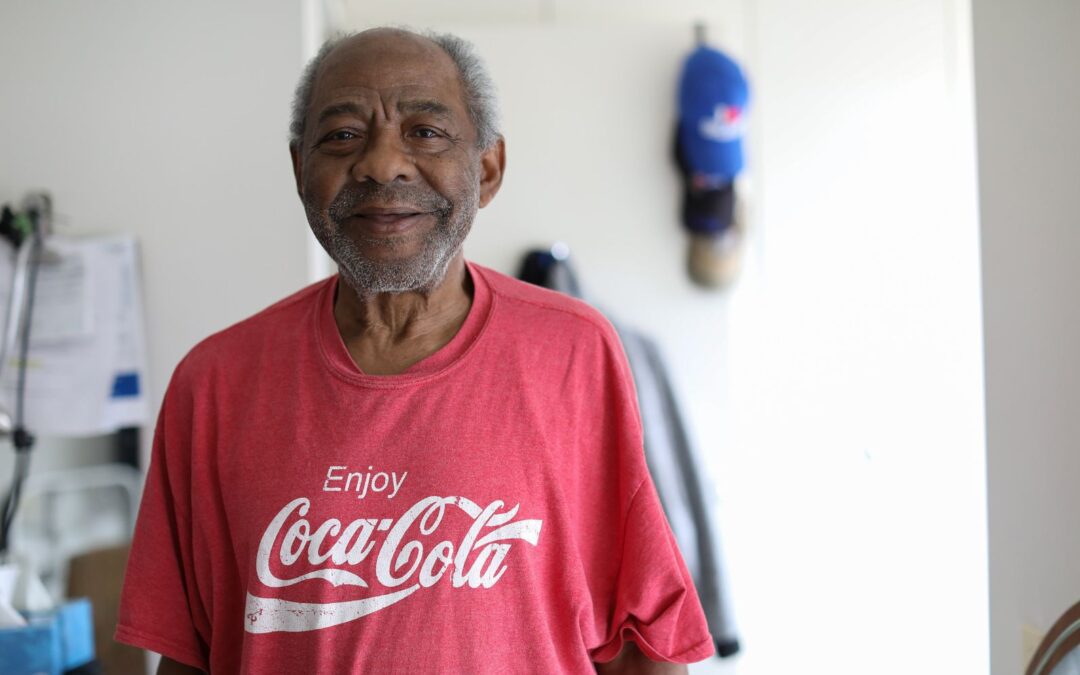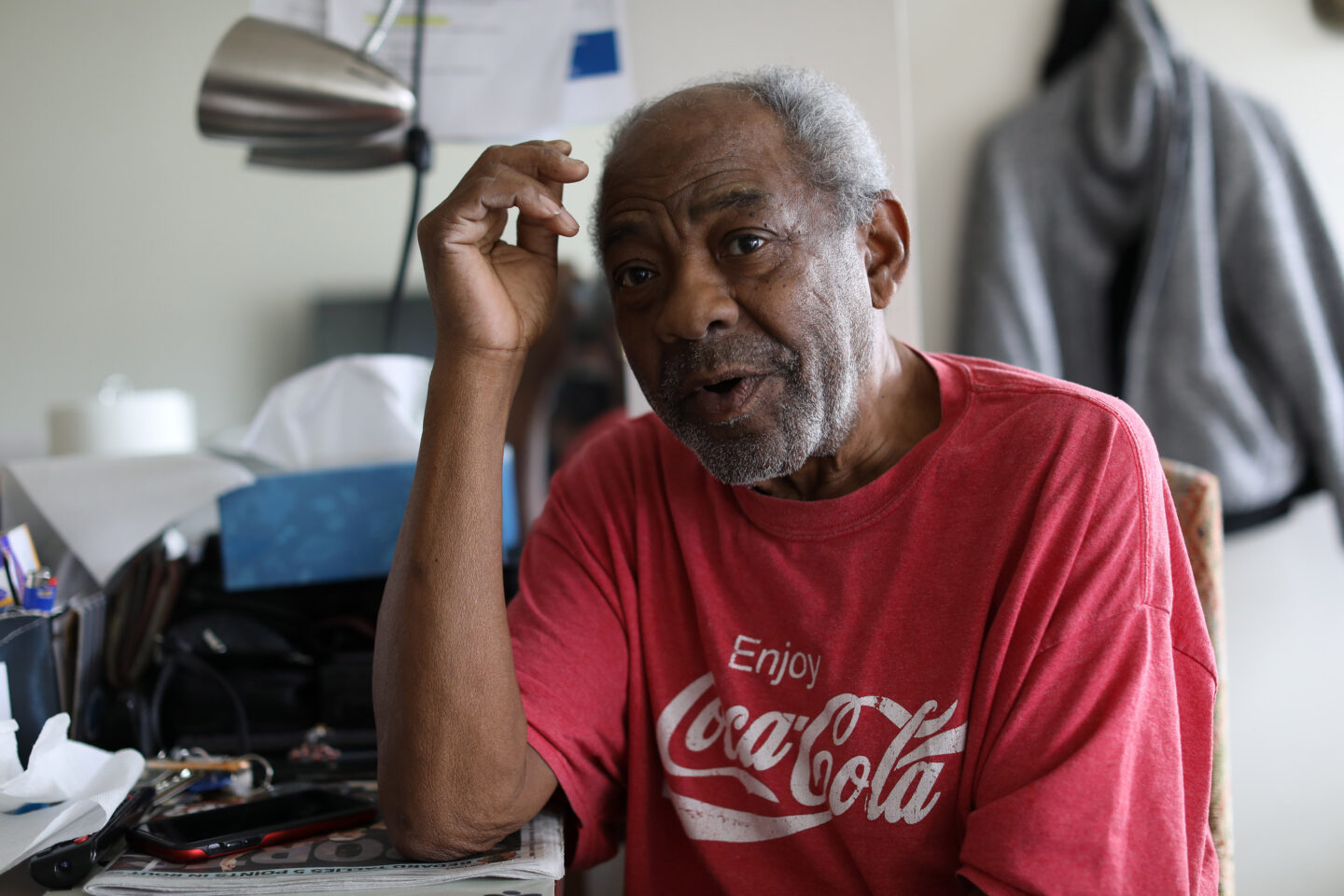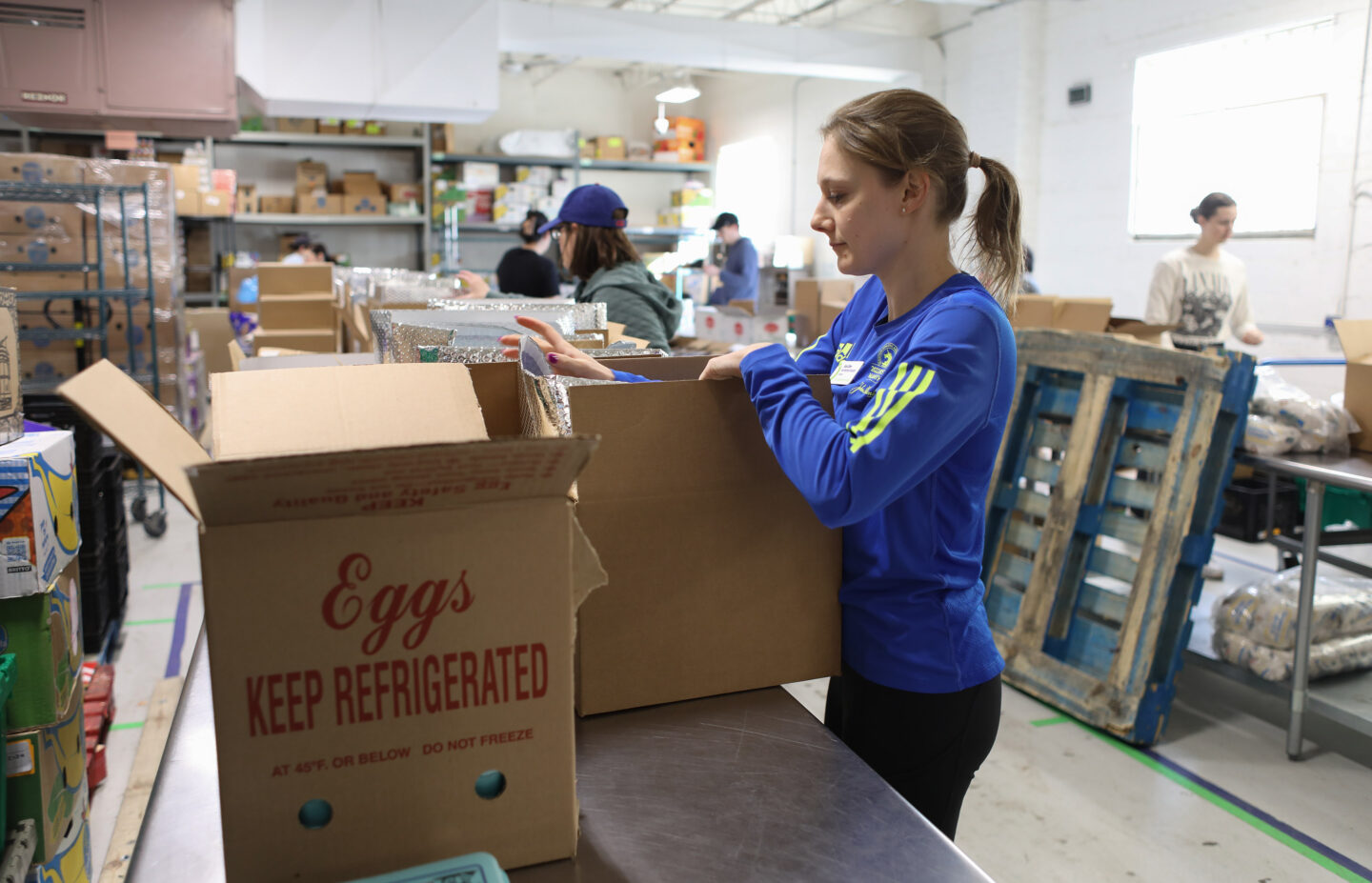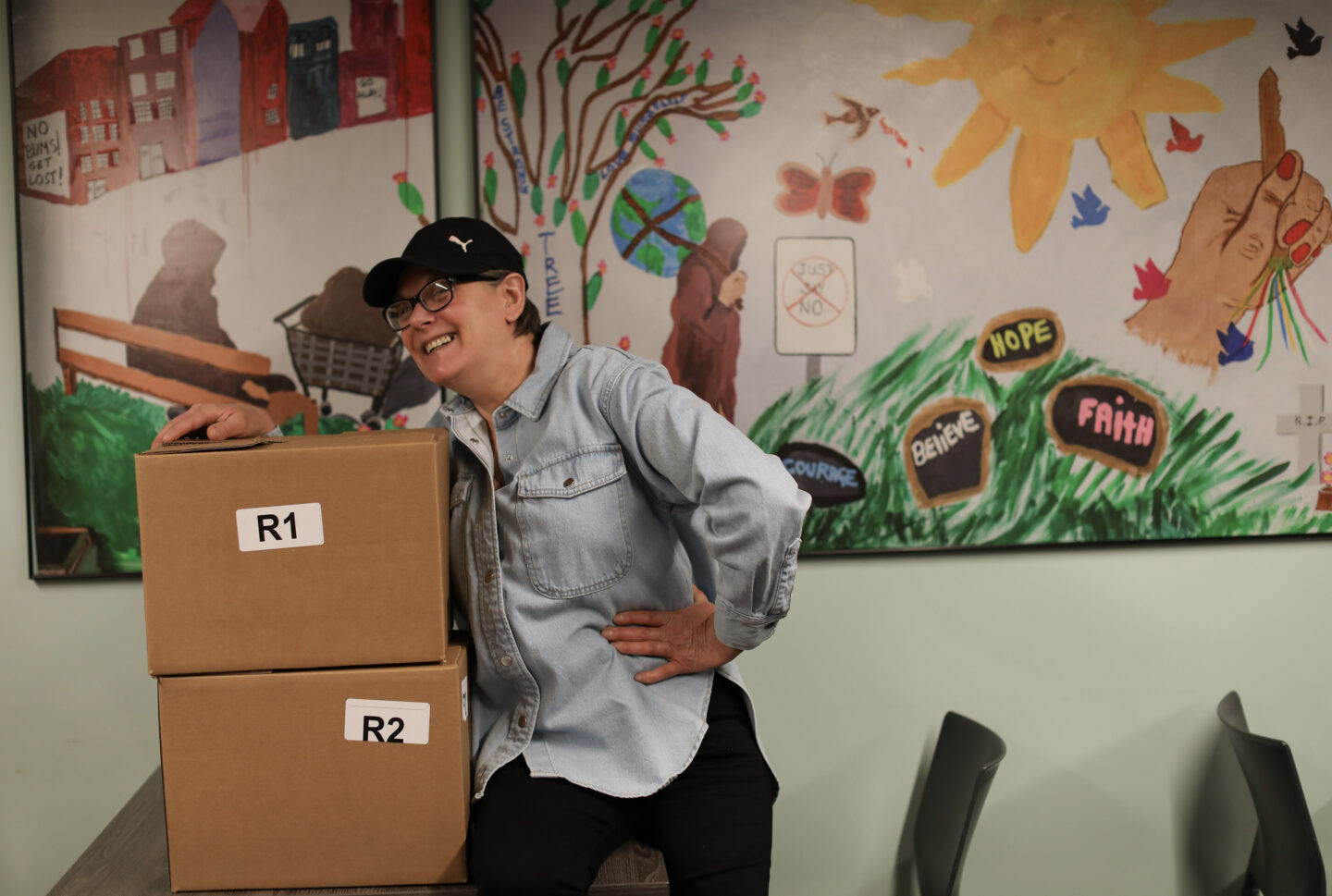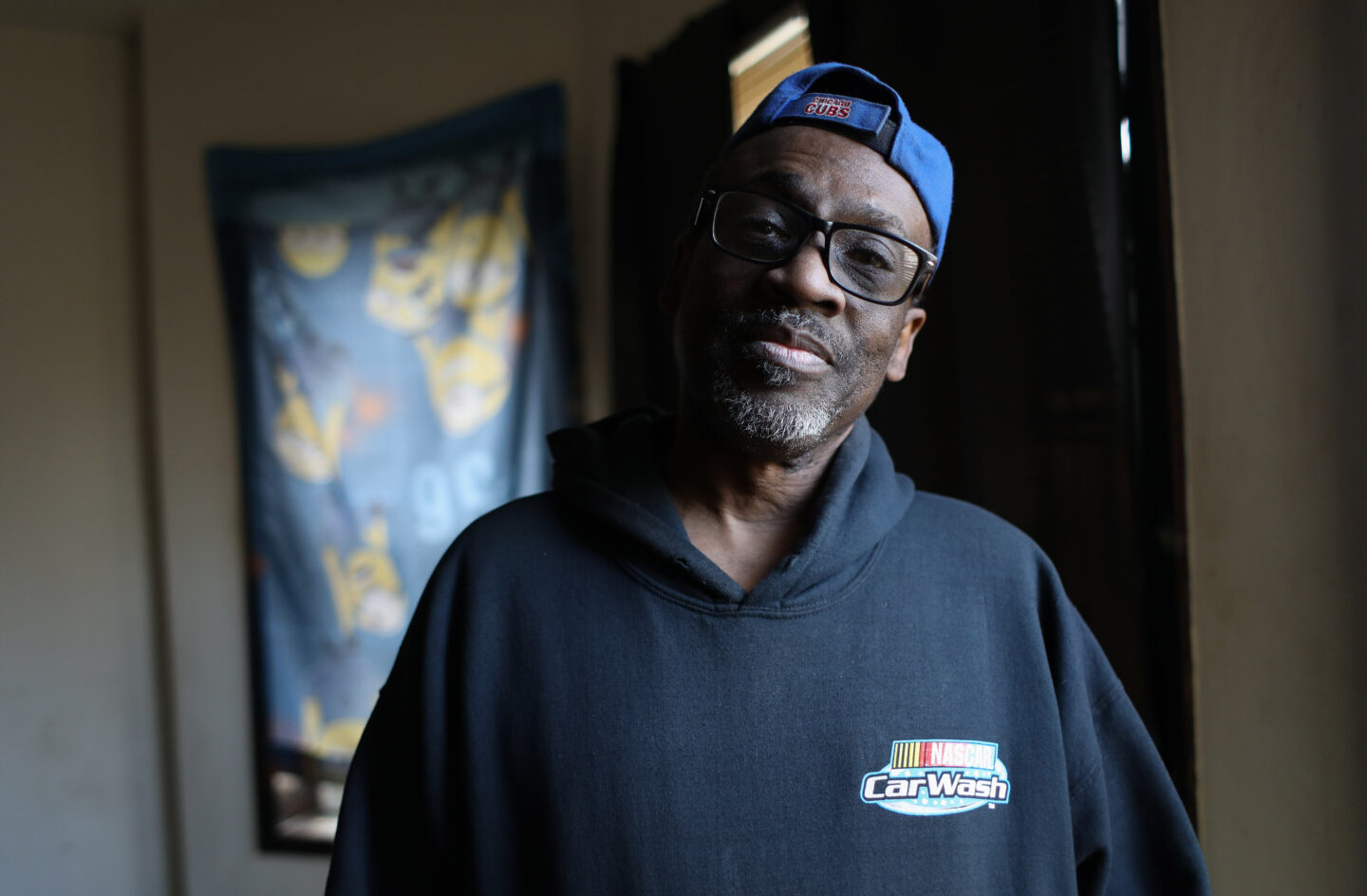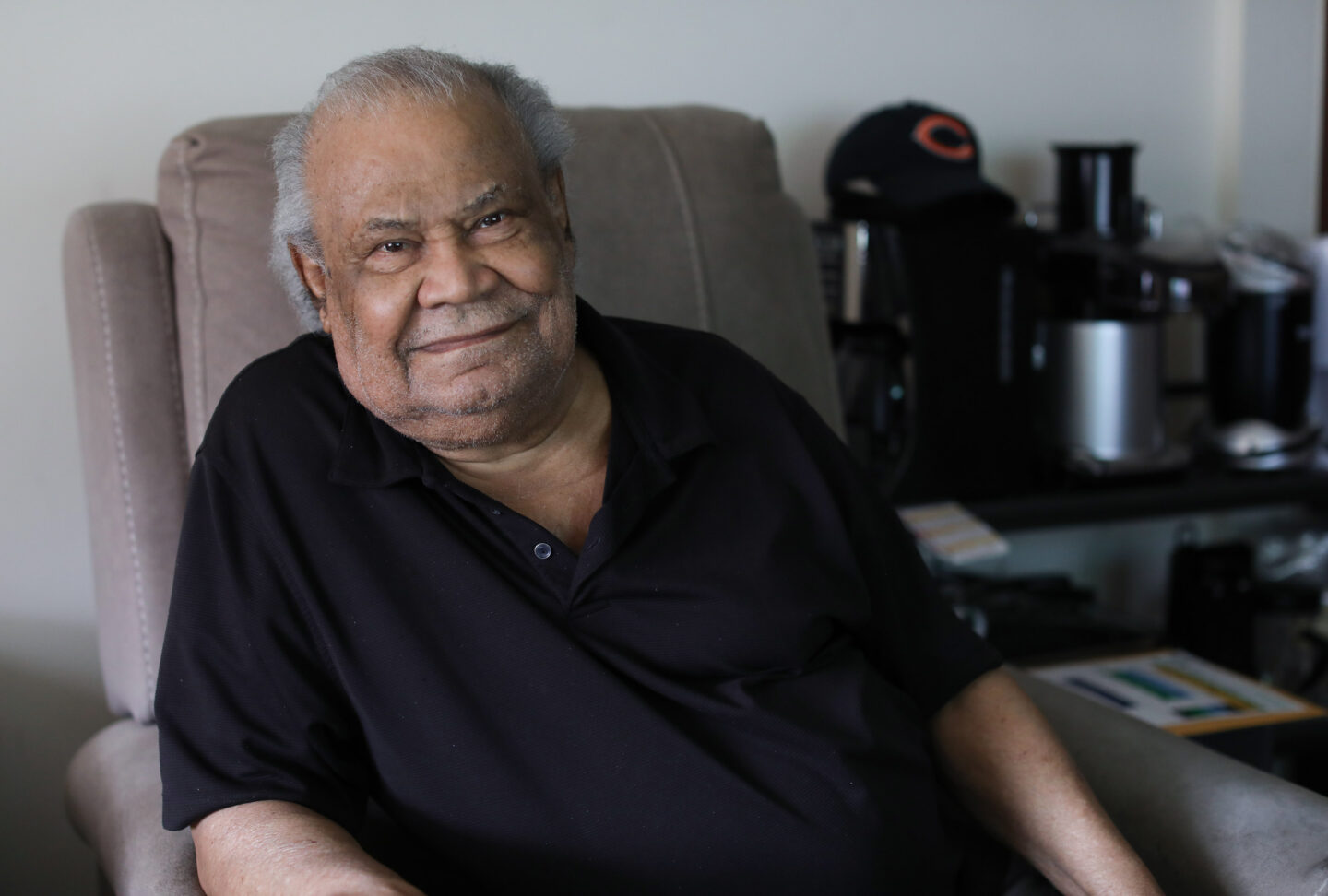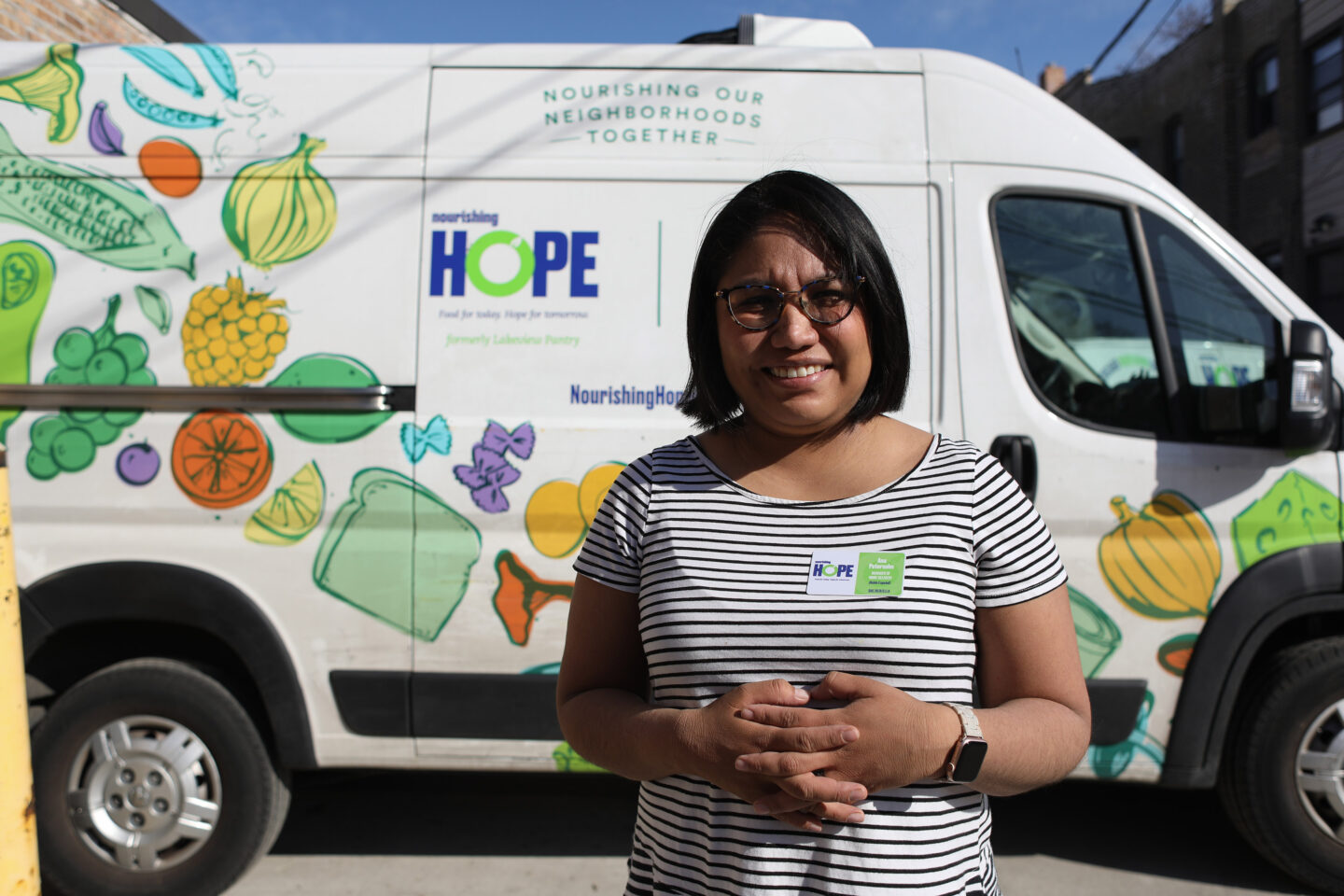(All photos taken by Abel Uribe for Nourishing Hope.)
From his 10th floor apartment in Uptown, Francisco Berrios has a sweeping southern view of Chicago, including the spectacle of Wrigley Field prominent in the foreground.
Now limited in his mobility, the 82-year-old peers sometimes through the binoculars on his nightstand to explore the sights of the city.
But on a recent Saturday morning, his thoughts drifted to the past and to the country he left behind. In 1980, Berrios was part of the mass exodus from Cuba known as the Mariel boatlift, when more than 125,000 people sought to escape Fidel Castro’s political regime.
Fearing imprisonment or worse, he left most of his family behind in Cuba, including a daughter with whom he speaks nearly every day, and a grandson he’s never met. Berrios survived 11 hours in a harrowing journey on a small boat on the open ocean, arriving in Key West, Florida. He made his way to Chicago, eventually, where he’s lived ever since.
“That’s the kind of stuff that torments you,” Berrios said in his native Spanish, speaking through a translator.
Berrios is one of about 950 people on the North Side who receive food each month through Nourishing Hope’s home delivery program, which was launched in 1989. The program, which serves older adults and people with disabilities, was also recently expanded to serve a growing number of people on the South and West Sides.
Most of Nourishing Hope’s home delivery recipients get by on a limited fixed income and live in subsidized housing. As food costs have risen in recent years, they’ve come to rely even more on the free monthly groceries. They look forward to the boxes of fresh fruits and vegetables, meat, dairy and other groceries.
The boxes of food are designed for a “healthy heart diet,” said Ana Petersohn, Nourishing Hope’s manager of home delivery north, who’s also a trained nutritionist.
“It makes me very happy that we are taking care of them somehow because they deserve it,” said Petersohn, 31. “They shouldn’t be forgotten.”
For more than 23 years, Berrios worked in a warehouse for the Marshall Field’s department store, which later became part of Macy’s. And though he can no longer get around well, he regularly talks to his girlfriend and brother who live nearby.
“I’ve had a good life here (in Chicago),” Berrios said.
With the food he receives from Nourishing Hope, he and his girlfriend, who is from Puerto Rico, like to cook meals together, such as bacalao, a Cuban fish dish.
“This program is wonderful,” Berrios said. “It’s helping a lot of people.”
‘We can all end up the same’
Make no mistake — Nourishing Hope’s home delivery program is powered by volunteers.
Every Saturday morning, in all kinds of weather, volunteer drivers arrive to load up their own vehicles with boxes of groceries to be delivered. They’re given a sheet of paper with the names and addresses of about six to eight households. They can borrow a collapsible wagon to haul the boxes down city sidewalks and into apartment buildings.
It’s no small undertaking. Each Saturday shift requires about 25 volunteer drivers to sustain the current number of clients. Another 20 to 30 volunteers are needed to glean the food and pack the boxes.
With even more volunteers, the program could help even more people. As of late March, there was a wait list of about 55 people who would like to receive food from the home delivery program.
“We have the food,” Petersohn said. “We just need more volunteers.”
For Rose Wilfert, 60, the home delivery program has provided both food and a source of connection to other people. A traumatic brain injury survivor, Wilfert hasn’t had an easy life. She’s been a victim of domestic abuse; she’s also experienced prolonged stretches of homelessness. Since 2017, she’s been stably housed in her apartment.
“It doesn’t matter who you are or where you come from, we can all end up the same and needing help,” she said.
The Kenosha native still has a quick wit and a buoyant spirit. During a recent interview in the community room of her Uptown apartment building, she joked about her delight in having a couple of handsome college students deliver her boxes of food recently.
She was also emphatic about this point: The home delivery of fresh, healthy food has been a game-changer for her.
“It has meant the world to me,” Wilfert said. “I get healthy food — eggs, milk, bread, produce. (The staff) are so personable and helpful. It makes you feel good.”
Down the street, Theartris Cobbins, 59, shares the food that he receives with his adult son and daughter, who live with him. Cobbins’s primary income is social security disability for mental illnesses, including bipolar disorder and short-term memory loss, he said. His son, Diante, 31, is also on disability.
With the rising cost of food, affording food on a fixed income has become more difficult.
“If it wasn’t for y’all…” Cobbins said, his voice trailing off. “I appreciate everything I get.”
‘They are important’
Basilio Medina, 84, struggles with loneliness. He receives very few visitors to his North Center apartment, except for a home caregiver who helps him with cleaning and cooking.
He’s often in physical pain, too, he said, as he gingerly rubbed his legs. In 1964, he was shot four times at a family gathering, he said. One of the bullets is still lodged near his spine — the source of his pain and discomfort.
“I’ve asked God to send me the ticket,” Medina quipped, just barely cracking a smile.
A native of Puerto Rico, Medina worked for decades as a butcher in his brother’s Humboldt Park store. He doesn’t eat much meat anymore for health reasons. But sometimes, his caregiver will cook Puerto Rican arroz con pollo — chicken with rice — and it reminds him of home.
Medina’s message for Nourishing Hope supporters: “Thank you to everyone who donates. You help elderly people like myself.”
Food insecurity and loneliness among older adults often go hand in hand. A recent Boston University study found heightened prevalence of food insecurity and loneliness among low-income older adults in subsidized housing.
That’s true of many of our neighbors receiving food from Nourishing Hope’s home delivery program. Participants in the program receive a “birthday bag” during their birthday month. The bags typically contain a dessert, an activity book and a puzzle.
“For us, it’s something small, but for them it’s something very big,” Petersohn said. “Someone still remembers their birthday and they are important.”
Petersohn has both the heart and expertise for this work. In her hometown of Mexico City, she worked as a nutritionist in a neonatal intensive care unit at a public hospital. In 2016, she moved to Chicago to continue her education and to be with her boyfriend, whom she’s since married.
Her passion for community nutrition has only grown, working for other hunger relief organizations in Chicago before joining Nourishing Hope in 2022.
And she has “a soft spot for elders,” in particular.
Tomasa Sandoval Velarde, Petersohn’s grandmother, was a powerful loving force in her life. Last summer, she died at age 96.
“If we can help them remember that we still see them, even if it’s only once a month, that’s everything for me,” Petersohn said of helping elders. “It makes me very proud to work here.”
